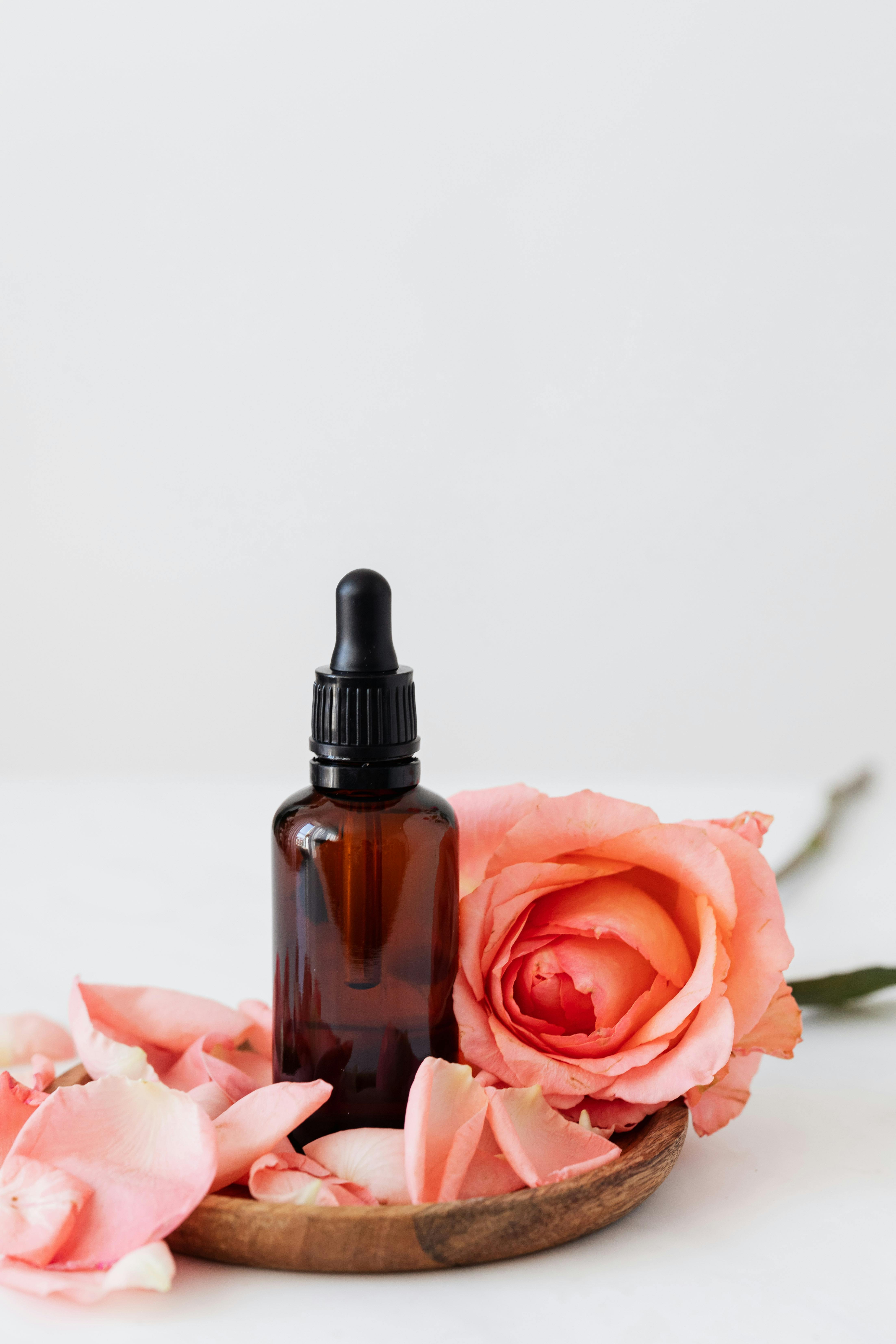You know that feeling of joy that overtakes you when you burst into uncontrollable laughter? Well, did you know that laughter therapy can do more than just make you feel happy? It turns out that laughter therapy is a powerful tool for stress reduction and relaxation. By engaging in laughter exercises and activities, your body releases endorphins, the feel-good hormones, which instantly uplift your mood and reduce stress levels. In this article, we will explore how laughter therapy can bring a much-needed dose of relaxation to your life and help you combat stress.

Benefits of Laughter Therapy
Laughter therapy, also known as humor therapy or laughter yoga, is a unique approach to promoting overall well-being. It offers several benefits at physical, mental, and emotional levels. By engaging in laughter therapy, you can experience a reduction in stress, improved relaxation, and enhanced overall health.
Physical Benefits
Laughter therapy has numerous physical benefits. When you laugh, your body releases endorphins, which are natural painkillers and mood elevators. This natural response not only helps in reducing physical pain but also acts as a stress reliever. Additionally, laughter therapy stimulates your heart, lungs, and muscles, providing a mini-workout for your body. Improved blood circulation, boosted immune system, and increased oxygen intake are some other advantages that contribute to your physical well-being.
Mental Benefits
Laughter therapy also has significant mental benefits. It helps in reducing anxiety, depression, and other negative emotions. When you engage in laughter therapy, your brain releases neurotransmitters like serotonin, dopamine, and endorphins, which create feelings of happiness, positivity, and relaxation. Moreover, laughter therapy improves cognitive functions, memory, and overall brain health.
Emotional Benefits
Laughter therapy is particularly effective in enhancing emotional well-being. When you laugh, you release emotional tension and reduce feelings of anger, frustration, and sadness. It allows you to let go of any negative emotions and creates a space for joy, happiness, and emotional upliftment. By engaging in laughter therapy, you can experience improved self-esteem, reduced social anxiety, and increased emotional resilience.
Stress Reduction and Relaxation
Understanding Stress
Stress is an inevitable part of life. While mild stress can be motivating, excessive or chronic stress can have detrimental effects on your physical and mental health. It can lead to various health problems like high blood pressure, heart disease, insomnia, and anxiety disorders. Understanding and managing stress is crucial for maintaining a healthy and balanced life.
Laughter as a Stress Reliever
Laughter therapy is an excellent tool for stress relief and relaxation. When you laugh, your body releases tension and stress in a natural and healthy way. It helps in reducing stress hormones like cortisol and adrenaline, leading to a calmer state of mind. Laughter also activates the body’s natural relaxation response, promoting a sense of well-being and inner peace.
Impact on Physical and Mental Health
Engaging in regular laughter therapy sessions can have a profound impact on both your physical and mental health. Studies have shown that laughter therapy improves cardiovascular health, immune system functioning, and respiratory functions. It also reduces muscle tension, alleviates pain, and promotes overall relaxation. At a mental level, laughter therapy reduces the symptoms of anxiety and depression, improves mood, and enhances overall mental well-being.

How Laughter Therapy Works
Laughter therapy encompasses various techniques that promote laughter and its benefits. The most popular methods include laughter yoga, humor therapy, and clown therapy.
Laughter Yoga
Laughter yoga is a unique form of exercise that combines laughter and deep breathing techniques. It involves practicing laughter in a group setting, guided by a laughter yoga leader. Laughter yoga sessions incorporate playful exercises, games, and laughter meditation to induce laughter and promote overall well-being. Through laughter yoga, you can experience the benefits of laughter in a structured and intentional way.
Humor Therapy
Humor therapy uses humorous content like jokes, funny stories, and cartoons to induce laughter and improve well-being. It can be practiced individually or in a group setting. Humor therapy encourages the use of humor as a coping mechanism, providing a positive outlook on challenging situations. Whether through watching funny movies, reading comic books, or participating in humor-focused activities, humor therapy can bring laughter into your life and contribute to stress reduction.
Clown Therapy
Clown therapy involves the presence of trained clowns in healthcare settings to bring joy and laughter to patients. These clowns use humor, magic tricks, and entertaining performances to create a positive and uplifting environment. Clown therapy has been particularly effective in reducing anxiety and fear in children and adults alike. The playful and lighthearted nature of clown therapy helps patients to relax, feel more at ease, and aids in their healing process.
Scientific Evidence
Laughter therapy has gained recognition in the scientific community as a complementary therapy. Numerous studies have been conducted to understand the effects of laughter on stress reduction and overall well-being.
Studies on Laughter and Stress
Research has shown that laughter therapy significantly reduces stress levels in individuals. A study published in the Journal of Applied Psychology demonstrated that laughter therapy decreased the stress hormone cortisol and increased positive mood states in participants. Another study published in the Scandinavian Journal of Psychology found that laughter therapy improved stress resilience and emotional well-being in patients with chronic stress.
Hormonal and Physiological Changes
Laughter therapy has been found to bring about hormonal and physiological changes in the body. It increases the production of endorphins, which are natural painkillers and mood regulators. Laughter also stimulates the release of oxytocin, known as the “bonding hormone,” which promotes social connection and reduces stress. At a physiological level, laughter therapy improves heart rate variability, strengthens the immune system, and enhances overall physical health.
Laughter as a Complementary Therapy
Laughter therapy is often used as a complementary therapy alongside conventional medical treatments. It can enhance the effects of medications and reduce the side effects of certain treatments. The positive emotions and relaxation induced by laughter therapy can improve the overall quality of life for individuals dealing with various health conditions. From cancer patients to individuals with chronic pain or mental health disorders, laughter therapy has shown promising results as a complementary therapy.

Laughter Therapy Techniques
Laughter therapy incorporates various techniques to promote laughter and its benefits. These techniques can be practiced individually or in a group setting.
Group Laughter Sessions
Group laughter sessions are an integral part of laughter therapy. By joining a laughter club or attending laughter workshops, you can engage in laughter exercises and activities with like-minded individuals. Group laughter promotes social connection, reduces feelings of isolation, and creates a positive and supportive environment. The collective laughter and shared experiences provide a sense of belonging and contribute to overall well-being.
Laughter Exercises
Laughter exercises involve intentional and prolonged laughter. These exercises can be performed alone or in a group. They may include activities like laughing without reason, imitating laughter, or incorporating physical movements while laughing. Laughter exercises focus on engaging the entire body and mind, promoting a holistic experience of laughter and its benefits.
Laughter Meditation
Laughter meditation combines laughter and mindfulness techniques. It involves focusing on the present moment while intentionally laughing. Laughter meditation helps in calming the mind, reducing stress, and promoting relaxation. By incorporating deep breathing and mindful awareness, laughter meditation brings a sense of tranquility and peace.
Laughter Yoga Benefits
Laughter yoga, as a specific form of laughter therapy, offers several unique benefits.
Breathing and Oxygenation
Laughter yoga incorporates deep breathing techniques, which help in increasing oxygen levels in the body. Deep belly laughter, combined with deep inhalation and exhalation, improves respiratory functions and oxygenates the body. This increased oxygenation promotes overall well-being and vitality.
Muscle Relaxation
During laughter yoga, the physical act of laughing stimulates your muscles and releases physical tension. The rhythmic contractions of muscles during laughter loosen and relax them, leading to reduced muscle tension and pain. Regular practice of laughter yoga can provide relief from muscle soreness and promote muscle relaxation and flexibility.
Positive Mindset
Engaging in laughter yoga cultivates a positive mindset. During laughter yoga sessions, you are encouraged to approach life with humor and positivity. Laughter yoga helps in shifting your perspective towards joy and happiness. By incorporating positive affirmations and laughter as a daily practice, you can develop resilience and a more optimistic outlook on life.
Humor Therapy Benefits
Humor therapy is another effective form of laughter therapy that provides unique benefits.
Distraction from Stressors
Humor therapy serves as a distraction from stressors and challenges in life. Engaging in humor-focused activities, such as watching comedy shows or reading funny books, provides a much-needed break from everyday pressures. By redirecting your focus towards humor, you can temporarily escape from stress and experience a sense of relief and lightness.
Strengthening Social Bonds
Laughter is a powerful social connector. Humor therapy, when practiced with others, enhances social bonds and fosters a sense of community. Sharing laughter and humor creates a positive and enjoyable environment, promoting strong social connections. This social support system created through humor therapy can help in reducing feelings of loneliness and isolation.
Enhancing Resilience
Humor therapy cultivates resilience in the face of challenges. By finding humor in difficult situations, you can develop a more adaptive approach to adversity. Humor therapy encourages a flexible mindset and the ability to laugh at yourself and life’s imperfections. This enhanced resilience helps in navigating life’s ups and downs with a positive attitude and emotional strength.
Clown Therapy Benefits
Clown therapy, although primarily used in healthcare settings, offers unique benefits that contribute to stress reduction and relaxation.
Laughter in Hospital Settings
Hospital settings can be stressful and overwhelming for patients, especially children. Clown therapy brings laughter and joy to these environments, creating a positive and uplifting atmosphere. The presence of trained clowns helps in reducing anxiety, fear, and discomfort in patients. The laughter and light-hearted interactions with clowns provide a much-needed distraction from medical procedures, making the hospital experience more bearable.
Reducing Anxiety and Fear
The playful and comedic nature of clown therapy has been found to significantly reduce anxiety and fear in both children and adults. The engaging and entertaining performances of clowns create a sense of calm and relaxation. By diverting attention from anxious thoughts and creating a pleasant environment, clown therapy allows patients to feel more at ease during medical treatments.
Boosting Healing Process
Laughter has been shown to have a positive influence on the healing process. Clown therapy, through its ability to induce laughter and create a positive emotional state, contributes to the overall well-being of patients. Laughter stimulates the release of endorphins, which have pain-relieving properties. This, combined with the emotional upliftment provided by clowns, aids in boosting the healing process and promotes overall recovery.
Combining Laughter Therapy with other Techniques
Laughter therapy can be combined with other complementary techniques to enhance its benefits.
Yoga and Meditation
Combining laughter therapy with yoga and meditation practices can provide a holistic approach to well-being. Yoga postures and breathing exercises complement the physical aspects of laughter therapy, promoting relaxation and stress reduction. Incorporating meditation after laughter sessions can deepen the relaxation response and provide mental clarity.
Art Therapy
Art therapy, which involves creative expression through various art forms, can be integrated with laughter therapy. Engaging in artistic activities like painting, drawing, or crafting can enhance the experience of laughter therapy. The creative process can serve as a cathartic outlet and further promote stress reduction and emotional well-being.
Music Therapy
Music therapy, known for its healing properties, can be combined with laughter therapy to create a harmonious and uplifting experience. Listening to or actively participating in music during laughter therapy sessions can amplify the positive emotions induced by laughter. The rhythm and melodies of music can enhance relaxation, promote emotional healing, and boost overall well-being.
Practical Application of Laughter Therapy
Laughter therapy can be practiced in various settings and applied to daily life to promote stress reduction and relaxation.
Laughter Clubs
Laughter clubs are community-based groups where individuals come together to practice laughter exercises and techniques. Joining a laughter club provides a regular and dedicated space for laughter therapy. Being a part of a laughter club fosters social connections and mutual support, creating a positive and joyful community.
Laughter Workshops
Laughter workshops offer a more structured and focused experience of laughter therapy. These workshops are facilitated by trained laughter therapists or leaders who guide participants through laughter exercises, activities, and discussions. Attending laughter workshops provides an in-depth understanding of laughter therapy and allows for deeper personal growth and transformation.
Incorporating Laughter in Daily Life
Incorporating laughter into daily life can greatly contribute to stress reduction and relaxation. Intentionally seeking out humor, watching comedy shows, reading humorous books, and spending time with funny friends are all simple ways to invite laughter into your daily routine. By consciously choosing to laugh and find joy in everyday situations, you can enhance your overall well-being and create a happier and more balanced life.
In conclusion, laughter therapy offers a multitude of benefits for stress reduction and relaxation. It is a powerful tool that promotes physical, mental, and emotional well-being. Whether through laughter yoga, humor therapy, or clown therapy, engaging in laughter therapy techniques can significantly reduce stress, improve relaxation, and enhance overall health. Scientific evidence supports the positive effects of laughter therapy, and its combination with other techniques like yoga, art therapy, and music therapy further amplifies its benefits. With practical applications such as laughter clubs, workshops, and daily incorporation of laughter, anyone can experience the joys and advantages of laughter therapy in their lives. So, embrace laughter and let it light up your path to a happier, healthier, and more relaxed you.
